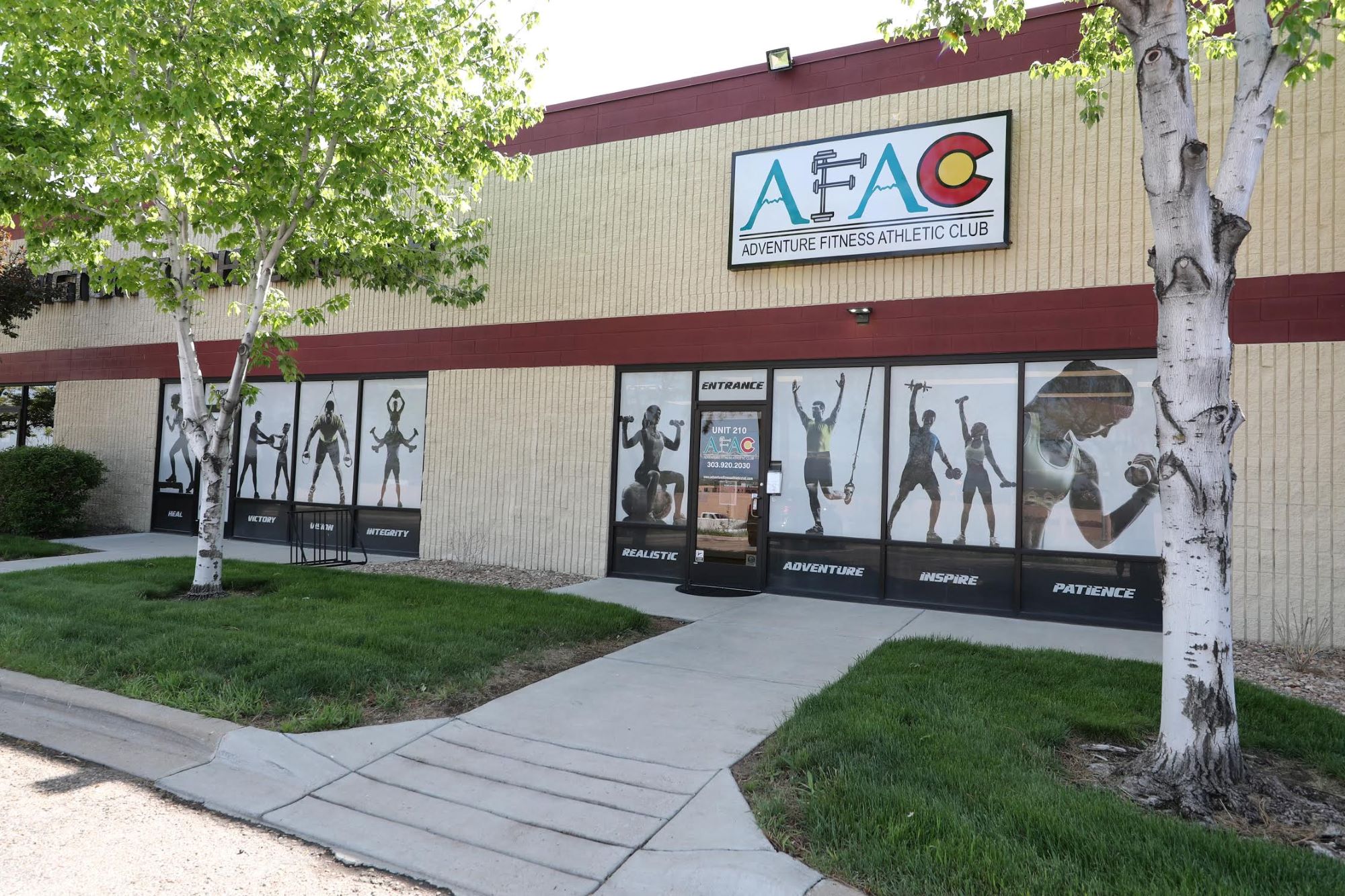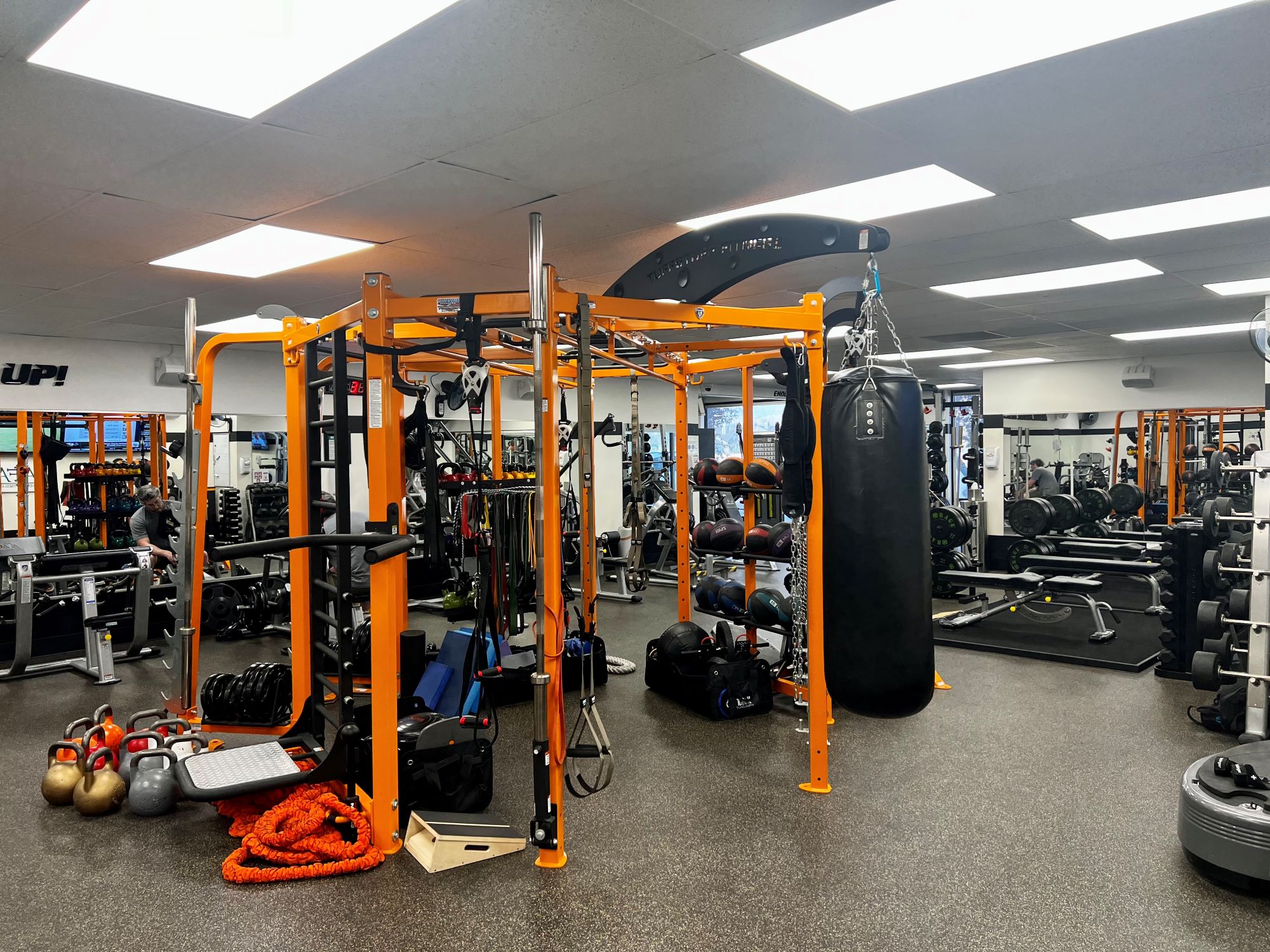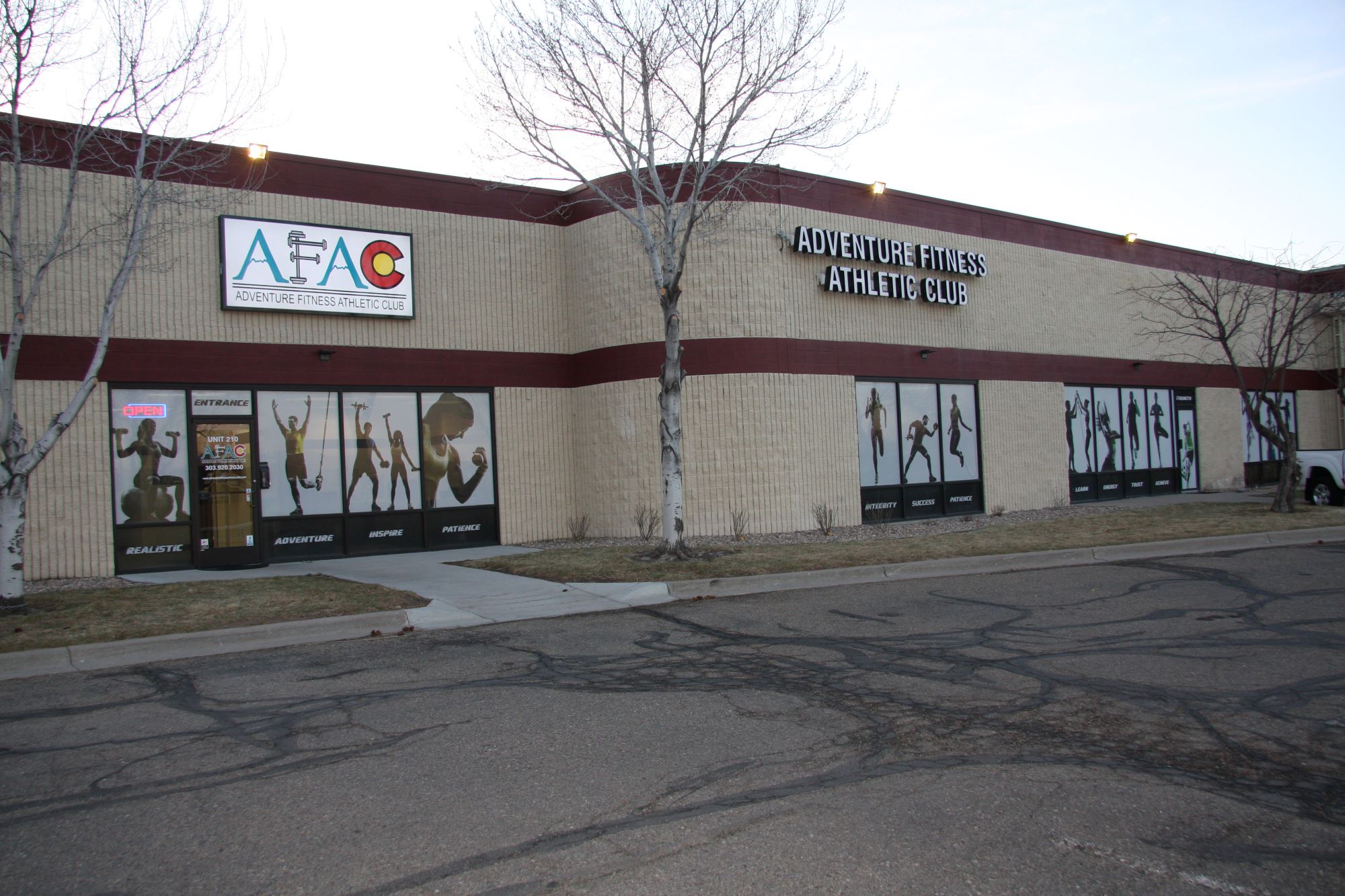When it comes to nutrition, protein might be the most talked-about topic among gym members. With National Protein Day coming up on February 27th, AFAC gym decided to dig into the meat of the matter and answer some common questions that gym members have about consuming protein, including why, how much, when, and what types to eat.
In a nutshell, more than 10,000 types of protein can be found throughout your body, from your muscles and organs to your bones, soft tissues, hair, and skin. Protein is also used to keep your cells healthy, create new cells, fuel your body with energy, carry oxygen through your blood, and make antibodies to fight off illnesses.
Among all the roles that protein plays in the human body, most gym members are interested in how protein is used to build muscle. Read this blog to learn more about protein and how it can be part of a healthy diet that fuels your workouts at our Thornton gym.
How Much Protein Do You Need When You Work Out at the Gym?
Protein is one of the most important nutrients that your body requires, whether you work out at the gym or not. Insufficient protein intake can negatively affect your health and body composition in many ways.
There are, however, differing opinions on how much protein people need to stay healthy. Most experts recommend that people consume at least 0.36 grams of protein per pound of body weight every day. While this might be enough to prevent a protein deficiency, the optimal amount of protein you need can depend on several factors like your age, activity level, overall health, and your fitness goals at the gym.
For example, here are some specific circumstances that can increase your protein needs:
- Your job — If you work at a physically demanding job, you need to eat more protein.
- Your activity level — If you’re an endurance athlete, for example, you need to eat about 0.5 to 0.65 grams of protein per pound of body weight.
- Your age — Older adults need about 50 percent more protein, or about 0.45 to 0.6 grams per pound of body weight, compared to younger adults. This can help older adults prevent osteoporosis (the loss of bone tissue that can occur with age) and sarcopenia (the loss of muscle mass and function that occurs as we age and can lead to falls, frailty, and functional decline).
- Your health — People who are recovering from an injury may need to eat more protein.
These situations aside, let’s look at two common goals for gym members – losing weight and gaining muscle — and how protein can help you achieve them.
Eating Protein to Lose Weight
Evidence from many studies has shown that protein is important for losing weight and maintaining weight loss. As many of our gym members know, to lose weight, you need to consume fewer calories than you burn. Yet, the types of calories you consume can also influence how successful your weight loss program is.
For instance, protein can help your weight loss efforts by:
- Boosting your metabolism — Compared to lower-protein diets, consuming 25-30 percent of daily calories from protein has been shown to boost metabolism by up to 80-100 calories per day.
- Reducing your appetite — Protein is a great appetite reducer (it keeps you feeling full way longer than fat or carbs) which leads to a reduction in calorie intake. In one study, obese men who consumed 25 percent of their calories from protein reported a 50 percent rise in feelings of fullness and a 60 percent decrease in late-night snacking desires. In another study, women who consumed 30 percent of their calories from protein ate 441 fewer calories per day and lost an average of 11 pounds over 12 weeks.
- Preventing weight gain — Not only does protein aid in weight loss, but it also can prevent you from gaining weight back. In one study, increasing protein intake from 15 to 18 percent of total calories reduced the amount of fat people regained after weight loss by 50 percent.
- Preserving muscle mass — A high protein intake also helps you build and preserve muscle mass, especially when combined with a regular strength training program. Muscle tissue burns more calories at rest than fat, which means you’ll burn more calories around the clock.
For optimal results, studies indicate that a protein intake of around 30 percent of total calories is best for weight loss. One exception to this is high-protein, low-carbohydrate diets which generally recommend dieters get 30-50 percent of their total calories from protein.
Eating Protein to Gain Muscle Mass and Strength at the Gym
Many gym members are focused on gaining muscle, and since muscles are made largely of protein, it only makes sense that any strength training program should be combined with a high-protein diet.
Muscle tissue is dynamic, which means it is constantly being broken down and rebuilt. By lifting heavy weights, athletes create tiny injuries to their muscle fibers called microtears. Once microtears occur, the body sends nutrients (like protein) and blood to the area to heal the muscle. This, in turn, builds stronger musculature. In other words, you must break muscle down to build it back stronger, and you need to eat sufficient protein to give your body what it needs to repair itself.
In addition, some people want to maintain the muscles they’ve built and lose body fat at the same time. To do this, they may need to increase their protein intake while reducing calories. A high protein intake, coupled with strength training, can help prevent the muscle loss that can occur with calorie restriction.
When it comes to maintaining and building muscle mass, experts don’t look at the percentage of daily calories coming from protein, but instead recommend daily grams of protein needed per pound of body weight.
The recommendations can vary somewhat, so it’s hard to give concrete numbers, but consuming about 0.72-1.0 grams of protein per pound of body weight per day is a good estimate. If you have a lot of body fat, then you should calculate this number using your goal weight (not your actual body weight), since it’s your lean mass that determines how much protein you need.
When Should You Consume Protein — Before or After Your Gym Workout?
Now that we’ve determined protein is necessary for muscle repair and growth — and that people who routinely strength train at the gym should consume about 0.72-1.0 grams of protein daily per pound of body weight — the next question is, should you consume protein before or after your work out?
According to research, the answer is, it doesn’t really matter. While many people believe that you should drink a protein shake within 30 minutes after exercise (known as the “anabolic window” — a time when your muscles are supposedly like a sponge for protein absorption), research suggests that this window is actually much longer than 30 minutes and doesn’t need to be limited to post-exercise only. When it comes to optimizing your muscle repair and growth, it appears that you can get the same results by drinking a protein shake before or after your workout. As long as you consume protein with your workout, you can choose the time that’s most convenient for you.
And, overall, studies find that your total protein intake throughout the day is the strongest predictor of muscle size and strength, regardless of whether you consume it close to the time you exercise.
What Are the Best High-Protein Food Sources for People Who Work Out at the Gym?
For best results, you should get a combination of animal-based and plant-based proteins in your diet. Research suggests that animal-based protein is better for building muscle, but it’s beneficial to consume a combination of both animal and plant protein. If you’re not able to get enough protein through food alone, protein shakes and protein bars can be a convenient resource for protein intake.
High-quality sources of animal-based protein include:
- Fish and seafood such as tuna, salmon, trout, haddock, cod, halibut, flounder, tilapia, pollock, and shrimp
- Poultry like chicken breast and turkey breast
- Lean beef in limited amounts
- Eggs (Omega-3 enriched eggs are best)
- Dairy products like milk, cheese, and yogurt, particularly Greek yogurt
- Whey protein, which is the primary protein found in dairy products and is often added to protein powders
You can also get protein from plant-based sources like:
- Tofu
- Nuts
- Seeds
- Legumes like beans, peas, and lentils
- Grains like corn, wheat, and rice
It’s best to limit the amount of protein you get from processed meats like sausage, bacon, and cold cuts.
Does Protein Have Any Negative Effects on Your Health?
A diet that’s reasonably high in protein seems to have no negative effects on healthy people.
Kidney and Bone Health
Some people have blamed high-protein diets on causing kidney damage and osteoporosis, but there are no studies to support these claims. While it’s true that people with preexisting kidney damage should restrict their protein intake, there’s no evidence that protein can cause kidney damage in people who are healthy. In fact, higher protein intakes have been found to lower blood pressure and help fight Type 2 diabetes — two conditions that can lead to kidney disease.
High-Protein, Low-Carbohydrate Diets
High-protein, low-carb diets are known to help people lose weight. These programs generally recommend that people consume 30-50 percent of their total calories from protein while greatly restricting the amount of carbohydrates they eat.
Carbohydrates are the main energy source for the body. When you don’t eat enough carbs for energy, your body is forced to break down fat into ketones, and the ketones become your body’s primary source of fuel. This puts your body into a state of ketosis. When your fat stores become your body’s primary source of energy, you might lose weight.
There’s no clear definition of what a low-carb diet is, as what’s low-carb for one person might not be low-carb for another. In general, however, eating less than 50 grams of carbs per day will put the body into ketosis. Be aware, however, that a low-carb diet does not mean a no-carb diet. There’s always room for plenty of low-carb veggies.
While high-protein, low-carb diets have been shown to help people lose body fat, they can be difficult to stick to in the long-term.
The Bottom Line
If you’re considering a high-protein diet to lose weight, increase muscle mass, or for any other reason, check with your doctor or a nutritionist to make sure it’s okay for you. They can advise you on a plan to ensure that you’re getting proper nutrition for your individual needs.
Protein Can Help You Reach Your Fitness Goals at AFAC Gym!
When accompanied by a nutritious diet that provides you with ample protein, your workouts at AFAC gym have the best chance of giving you the results you’re hoping for. If you have any questions about starting a strength training and cardiovascular fitness plan at AFAC gym, please speak to our staff and personal trainers. We are here to support you during every step of your fitness journey.
For more details about how you can become a member of AFAC, the best gym in the Thornton, Colorado, area, please visit us or give us a call at your convenience. You can also contact our gym owner, Susan, at 720-849-0245 or susan@adventurefitness.club for assistance.
To read more articles from Adventure Fitness Athletic Club, check out our Adventure Corner blogs by clicking here.







